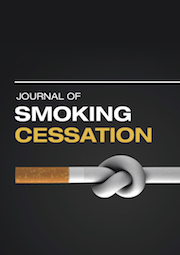Article contents
Evidence of Declining Nicotine Dependency in New Callers to a National Quitline
Published online by Cambridge University Press: 21 February 2012
Abstract
Objective: To look for evidence of changing nicotine dependency self-reported by new callers to a national quitline in New Zealand between 2001 and 2005. Methods: Levels of self-reported nicotine dependence of new callers were compared across 5 years to determine changes over time. Results: Statistically significant decreases were found in all 3 measures of nicotine dependence over the 5-year period: time to first cigarette (7.9% decline for smoking within 30 minutes of waking), intensity of inhalation (36.8% decline for ‘heavy’ inhalation), and number of cigarettes per day (29.8% decline for 21+ cigarettes per day). Conclusions: The results showed the proportion of callers with high nicotine dependency remains large but decreased continuously during the 5-year period. A decline of highly nicotine dependent callers to the Quitline may indirectly suggest an increased proportion of hard-core smokers in the overall smoking population as this group tends to be less likely to consider quitting smoking. However, the results may also suggest that the overall smoking population was less nicotine dependent in 2005, than it was in 2001, or that the Quitline has become less appealing to heavily nicotine dependent smokers.
- Type
- Articles
- Information
- Copyright
- Copyright © Cambridge University Press 2007
- 3
- Cited by


